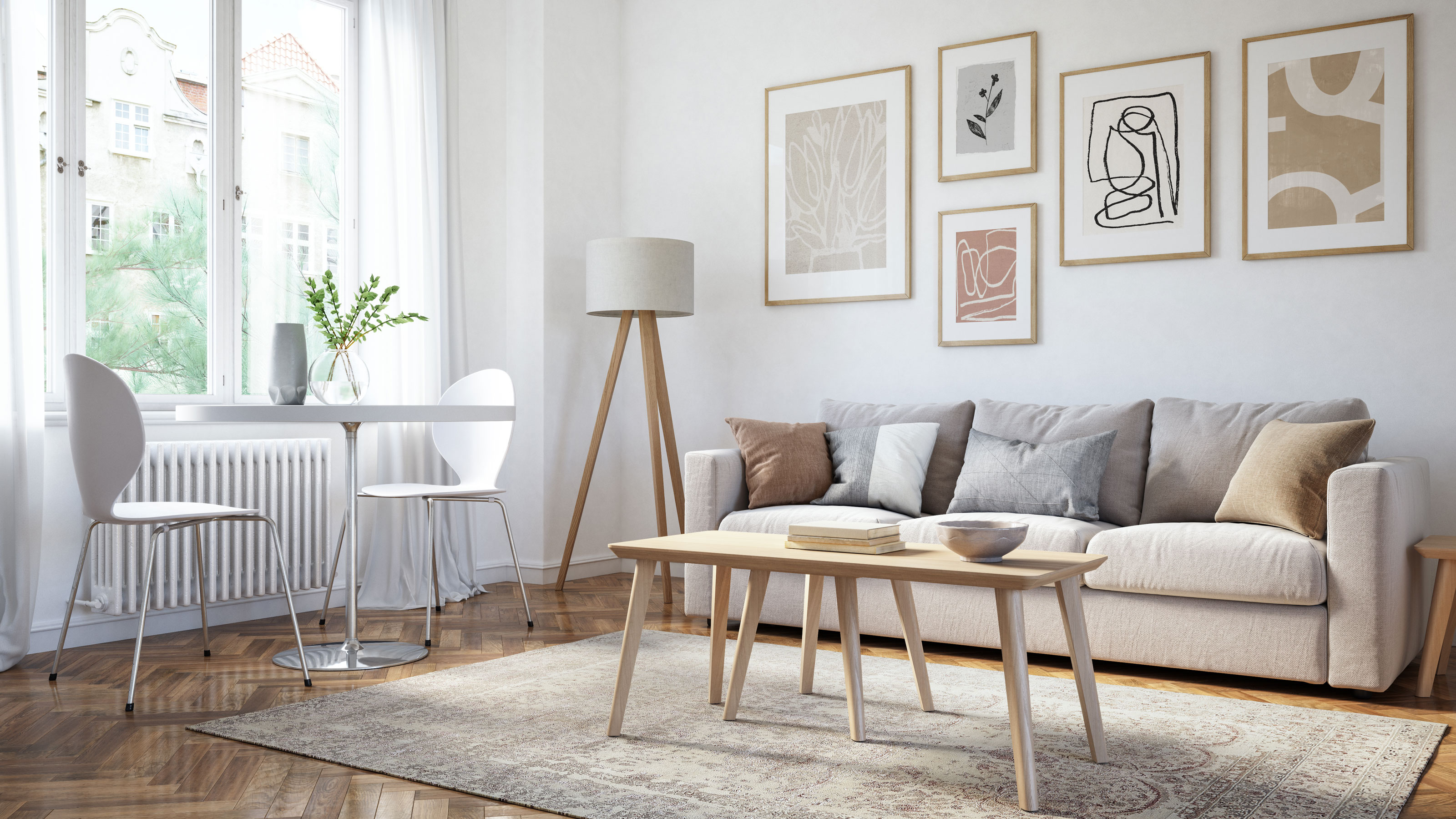Srsly — apartment living can actually be better than moving into a house
You heard it here first


Get small space home decor ideas, celeb inspiration, DIY tips and more, straight to your inbox!
You are now subscribed
Your newsletter sign-up was successful
While the arguments on renting versus buying wager on, there’s less discussion about the pros and cons for the type of home people might choose.
While everyone's housing preferences and needs differentiate, it's clear that apartment living has plenty of advantages for many.
When it comes to finding the best apartment for yourself, there are plenty of aspects to keep in mind. From more communal living and walkable neighborhoods to less maintenance and lower costs, there are plenty of reasons apartment living can be better for your day-to-day life than moving into a house.
Here are just a few reasons why living in an apartment could be the best place for you to call home.
Having Less Space
While having more space can be more comfortable for large families or those who work from home, having less space to clean and decorate can save you time and money in the long run.
Generally, because houses tend to be larger, you end up purchasing more furniture and other decor which could add up. Having fewer rooms to fill means you'll save on these items.
Another one of the best day-to-day reasons that smaller spaces, like a studio apartment, might be advantageous is that there are fewer surfaces, textiles, and square footage to keep clean, saving you time each week.
Get small space home decor ideas, celeb inspiration, DIY tips and more, straight to your inbox!
Enjoying Communal Living
For social people, apartment living can increase their social circle. Especially for apartment buildings that feature more common areas, such as pools, patio areas, or screening rooms, communal living allows you to get to know your neighbors.
Communal living can also be great for reducing loneliness, especially in residents who are elderly or going through a life transition, such as divorce.
In the end, if you want to meet more people, you might want to opt for a larger apartment building where many of the residents might share your common interest.
Less Maintenance Issues
Depending on a number of factors — mainly geographical location and the size of your family — there are some clear comforts that a house can bring rather than an apartment.
On the other hand, if those aspects aren’t important to your home life, then you might want to consider how your list of responsibilities might be reduced if you live in an apartment building.
Even for apartment owners, housing associations typically handle responsibilities such as lawn care and security. For renters, landlords who have more tenants (such as landlords who own entire buildings) could be more adept at quickly handling day-to-day issues, such as broken toilets or peeling paint.
More Walkable Neighborhoods
Often, neighborhoods with apartment buildings can have more walkability than houses, which are typically located in less populated neighborhoods, suburbs, or in more rural areas.
Even for those who prefer not to walk, the lack of public transit options and long bus wait times could force you to purchase a car in order to get around. Because of the nature of how suburban neighborhoods are laid out, especially in the United States, a car might be required in order to do the day-to-day errands, such as grocery shopping or visiting the doctor. For those in a walkable neighborhood in an apartment building, public transit could be a more viable option.
Another benefit to living in a walkable area is that walking can be good for your health, both mentally and physically. Getting exercise and being outside are just a few ways to keep you fit.
Security Reasons
While there are plenty of private security systems and home security cameras on the market, typically apartment buildings will already have those measures in place.
Many buildings have surveillance cameras, security guards, secured doors, and other measures in place in order to cut down on crime and intruders.
Moving into an apartment also means you are surrounded by close-quarter neighbors — people who you can easily reach out to in an emergency situation.
Less Expensive
Most houses tend to have more square footage, including garages or outdoor areas, such as yards or patios, meaning that many times, houses will be more expensive to rent than apartments.
More square footage also means bigger utility bills, especially during the summer or winter when you have to turn on the air conditioning or heat.
When you factor in maintenance costs as well as monthly costs (such as the gym or access to a pool), you might be saving more money by living in an apartment versus a house.
Less Yard Work Needed
Houses often come with front yards, backyards, patios, or other outdoor areas that require regular upkeep. For apartment buildings, outdoor spaces are often limited, with courtyards or patios being looked after by building managers and other tenants.
For those moving into a house, it’s worth considering how much of the yard work responsibilities (such as pulling weeds, mowing grass, or watering flowers) will fall on you versus the landlord. If you want to avoid any of those tasks, opting to move into an apartment instead can save you the hassle.

Hello! I’m Kate Santos, a writer and photographer based in Los Angeles. In the design world, I got my start working as an Editorial Intern for Dwell magazine in San Francisco. Since then, I’ve written about design and architecture in many national magazines and online publications, including Playboy, Hunker, and The Culture Trip.
I grew up in a very old house in North Carolina and am still influenced by the rustic, charming, antique and aged elements of a home. Sustainability and longevity is extremely important to me and I believe learning to reuse materials or purchasing items you’ll love forever goes a long way. I also lean towards the Japanese philosophy of wabi-sabi when designing my own home, embracing the perfectly imperfect items I can find.